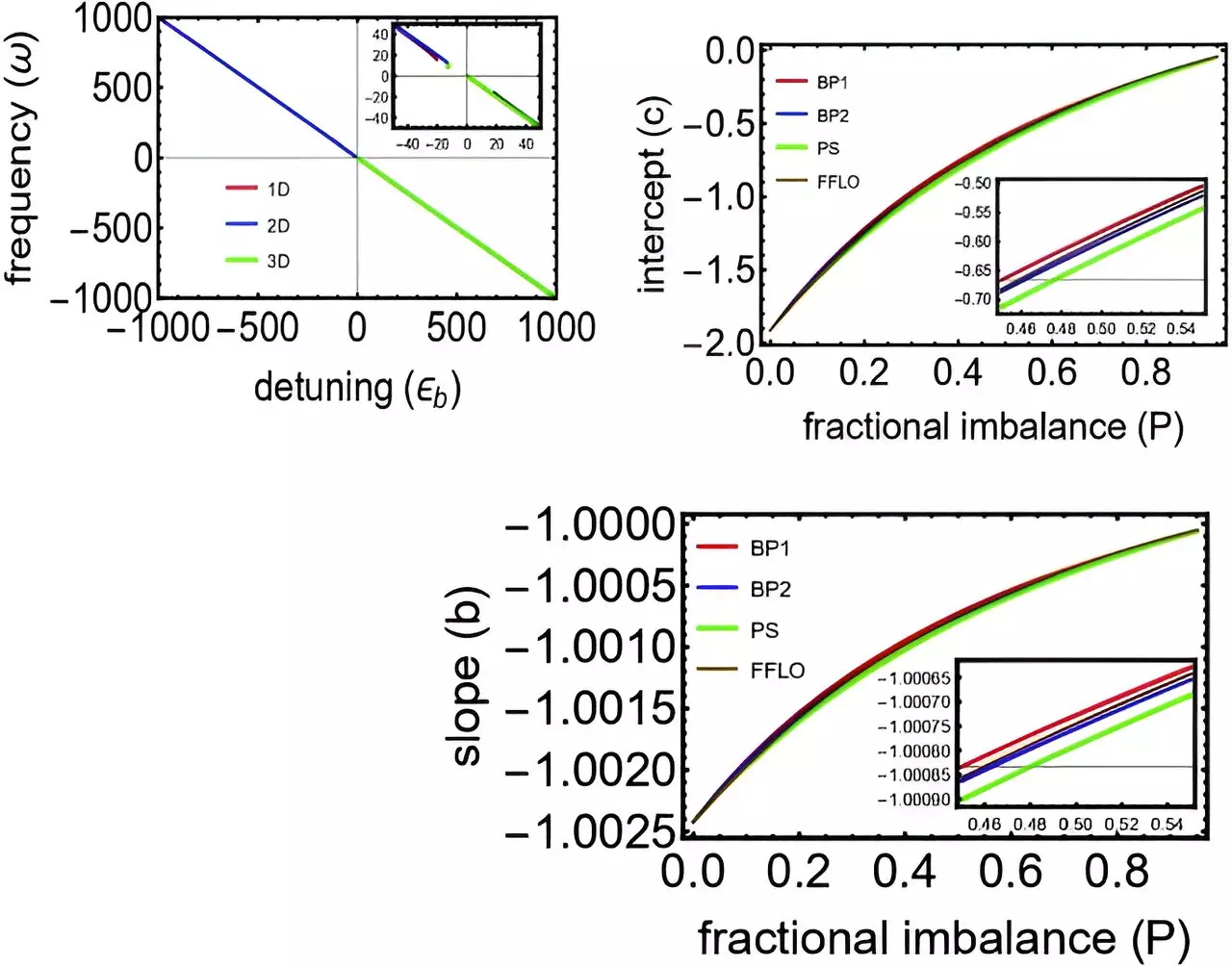In the realm of physics, the study of ultra-cold fermionic systems has been a topic of interest for many physicists over the last two decades. By containing these systems in either magnetic or optical traps, researchers have been able to observe fascinating phenomena when an external magnetic field is applied. One such phenomenon involves the pairing of particles to form composite “bosonic molecules” with a full-integer spin. These molecules undergo Bose-Einstein condensation at low temperatures, resulting in all particles occupying the lowest-energy quantum state.
Recent advancements in experimental precision have been achieved by confining these particles within optical lattices, which are periodic patterns created by intersecting laser beams. In a study published in The European Physical Journal B by Avinaba Mukherjee and Raka Dasgupta at the University of Calcutta, a new trend in the oscillations of Bose-Einstein condensates formed from fermions has been theoretically predicted. These oscillations can be manipulated by adjusting an external magnetic field, particularly in systems where the two species have unequal populations, resulting in unpaired fermions.
Mukherjee and Dasgupta’s research delves into the application of Feshbach detuning, a technique commonly used to manipulate ultracold atomic gases by adjusting the energy required for forming bosonic molecules through an external magnetic field. Their findings reveal that when the Feshbach detuning surpasses a certain threshold, there is a periodic oscillation in the fraction of Bose-condensed particles. However, below this threshold, no oscillation occurs. The relationship between the oscillation frequency and the strength of Feshbach detuning applied is linear, indicating important information about potential exotic phases of matter in the system.
The implications of Mukherjee and Dasgupta’s work extend beyond theoretical predictions, offering potential insights into advanced physical properties present in these systems. By understanding the behavior of Fermionic systems under external magnetic fields and the impact of Feshbach detuning, physicists may uncover novel phases of matter that could be harnessed for a variety of quantum technologies. This research opens up new avenues for exploration and experimentation in the field of ultra-cold physics, paving the way for groundbreaking discoveries in quantum science.


Leave a Reply